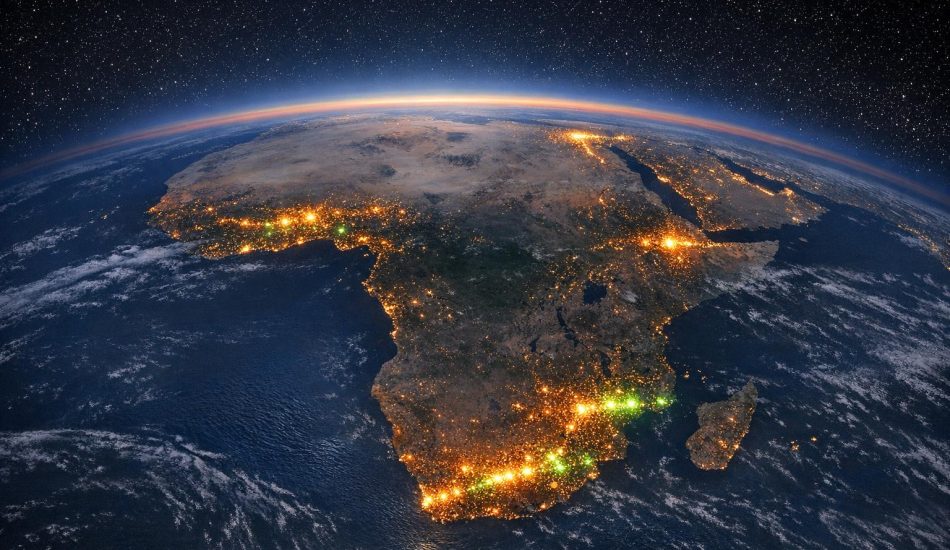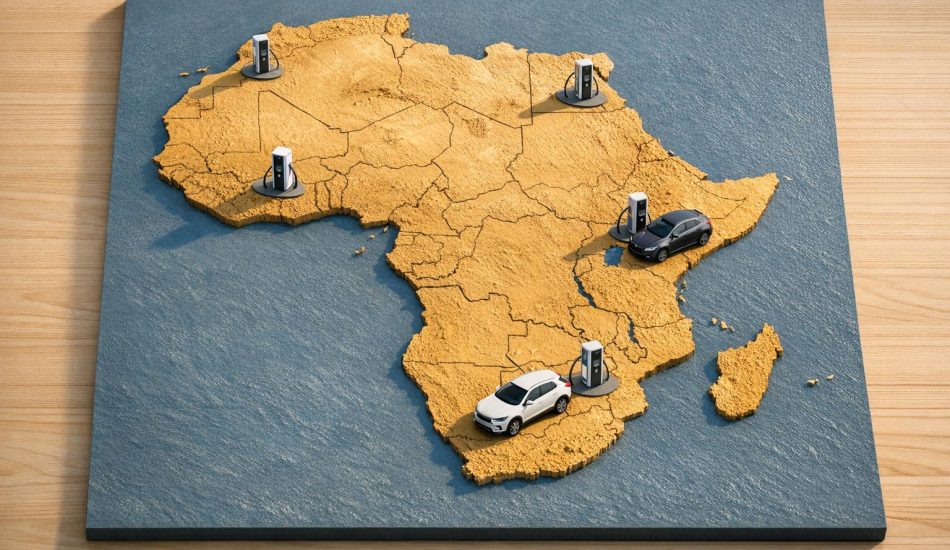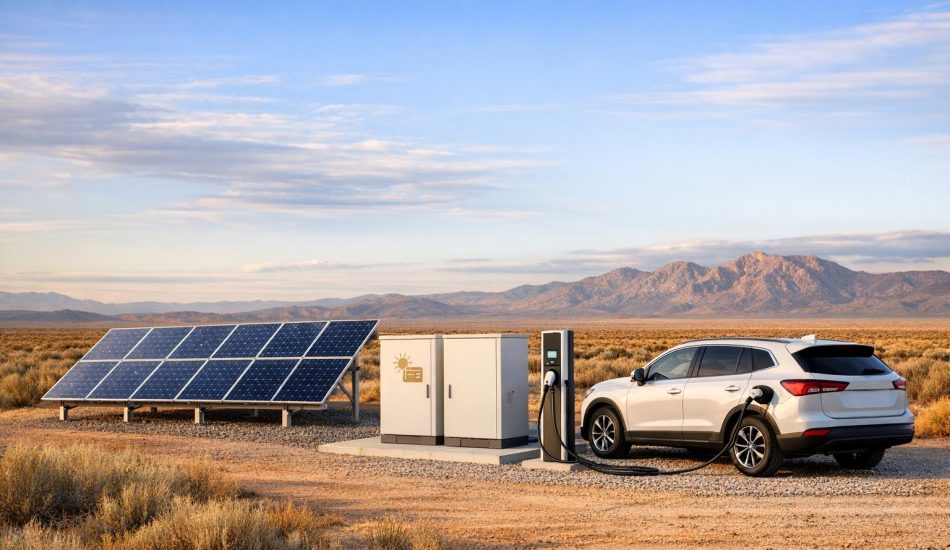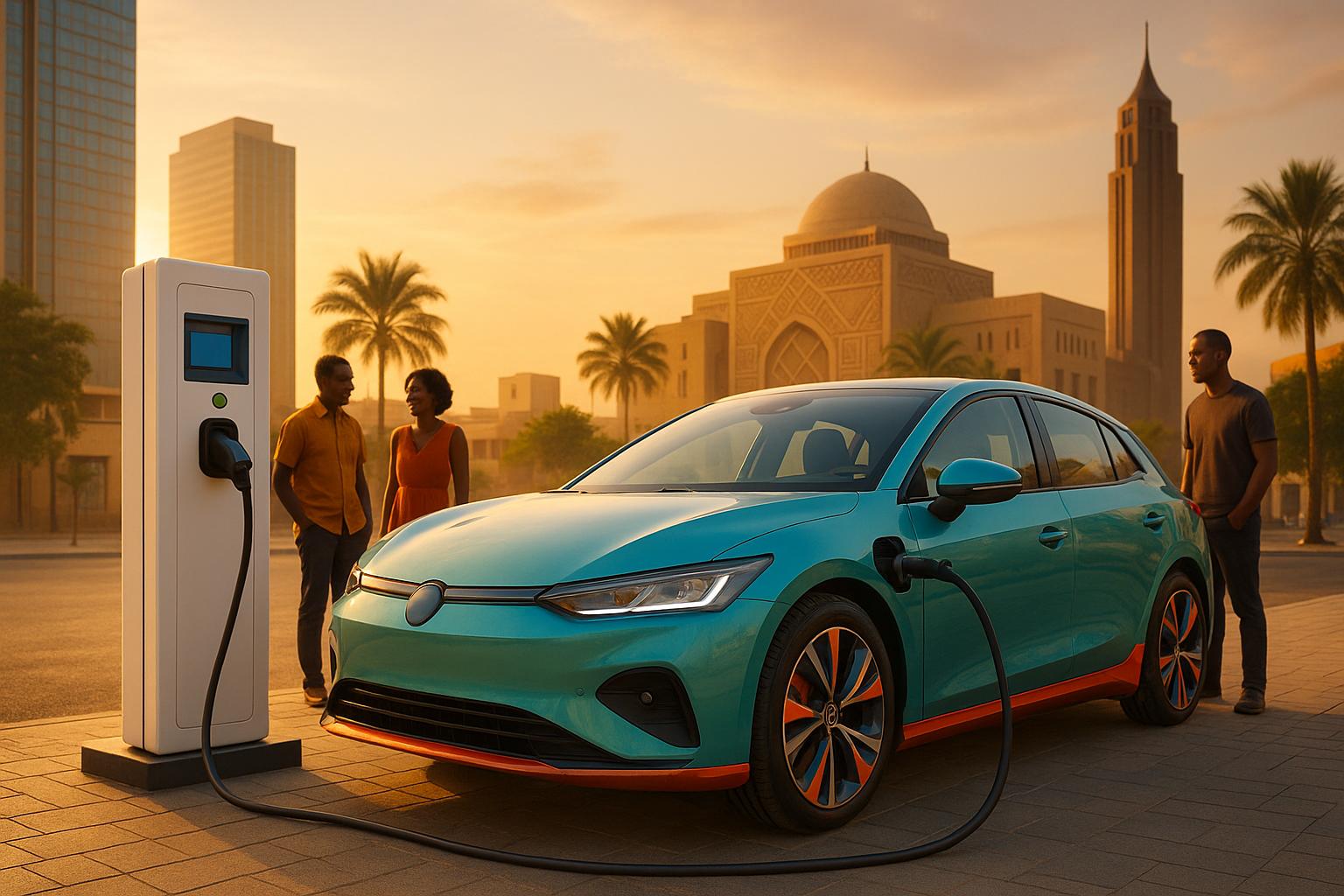
Africa’s electric vehicle (EV) market is growing, with countries like South Africa, Egypt, and Morocco leading the way. Despite challenges like high prices and limited charging infrastructure, the market is projected to reach $209.9 million in revenue and 2,270 units sold by 2025, with a yearly growth rate of 10.60% through 2029. Key drivers include rising fuel costs, government incentives, and expanding charging networks. Policies in Rwanda, Ethiopia, South Africa, and Kenya are helping reduce barriers, while manufacturers are introducing lower-cost EV models to meet local needs. The commercial EV sector, especially for fleets, is also gaining traction. Collaboration among policymakers, manufacturers, and investors will be key to overcoming hurdles and accelerating adoption.
Burkina Faso unveils first locally produced electric vehicle model
Growth Patterns and Market Changes
Africa’s electric vehicle (EV) market is undergoing a noticeable transformation, with encouraging trends shaping its future. These projections highlight a shift in consumer behavior and point to challenges in infrastructure that need addressing.
Expected Adoption Rates and Market Growth
By 2025, Africa’s EV market is projected to generate $209.9 million in revenue, with sales reaching 2,270 units. This momentum is expected to continue, with an annual growth rate of 10.60%, pushing the market to $314.1 million and 3,650 units by 2029. This steady growth reflects a sector gaining traction and hints at broader adoption across the continent.
"The Electric Vehicles market in Africa is experiencing significant growth and development, driven by various factors such as customer preferences, market trends, local special circumstances, and underlying macroeconomic factors." – Statista Market Insights Analyst Opinion
Lower-Cost EV Models and Affordability
Even with this growth, affordability remains a hurdle. The average price of an EV in Africa is expected to hover around $92,300 in 2025, making many options inaccessible to a large portion of the population. This high price point is largely due to the dominance of premium imported vehicles in the market.
However, as battery prices decline, manufacturers are beginning to introduce more affordable models tailored to meet the continent’s transportation needs. This shift is crucial for broadening access and aligning with the growing demand for cost-effective, sustainable mobility solutions.
"Consumers are becoming more conscious of the negative impacts of traditional gasoline-powered vehicles on the environment and are seeking alternatives that reduce carbon emissions." – Statista Market Insights Analyst Opinion
Growth Trends by Leading Markets
Growth across Africa isn’t uniform, as countries differ in their readiness to adopt EV technology. Factors like infrastructure availability and government policies play a significant role in shaping regional markets. For instance, areas with stronger investments in charging networks and supportive regulations are likely to see faster adoption compared to those lagging in these areas.
| Market Factor | Observations | Growth Drivers |
|---|---|---|
| Infrastructure Readiness | Uneven across regions | Investment in charging infrastructure and policies |
| Consumer Awareness | Growing interest | Environmental concerns driving demand |
| Price Sensitivity | High | Need for affordable EV options |
This uneven development presents both opportunities and challenges, depending on how quickly local markets can adapt to these evolving demands.
Government Policies and Infrastructure Development
Across Africa, governments are working to lower barriers and encourage the adoption of electric vehicles (EVs). Through targeted policies and infrastructure investments, they’re making EVs more accessible while fostering local production.
National Policies Supporting EV Growth
Several African nations are introducing policies to accelerate EV adoption, focusing on tax incentives and import duty reforms. Rwanda has taken bold steps in this direction. In July 2023, Uzziel Ndagijimana, Rwanda’s Minister of Finance and Economic Planning, announced the removal of customs duties on all EV imports, including two-wheelers, tricycles, and other non-fossil fuel vehicles, as part of the 2023-2024 budget.
"The aim is to encourage the adoption of electric vehicles and contribute to a cleaner, greener future." – Uzziel Ndagijimana, Rwanda’s Minister of Finance and Economic Planning
Ethiopia has also made significant strides. In 2023, the country banned the import of internal combustion engine (ICE) vehicles while introducing duty waivers, tax exemptions, and incentives to support local EV assembly. These measures aim to establish a domestic EV industry.
South Africa, meanwhile, is focusing on manufacturing incentives rather than reducing import duties. Starting in 2026, manufacturers will benefit from a 150% tax deduction on investments in electric and hydrogen-powered vehicle production. This incentive allows companies to deduct 150% of the costs associated with buildings and equipment used for EV production. However, challenges persist, as EV import duties remain at 25%, compared to 18% for traditional combustion vehicles.
"Boosting local manufacturing is positive; however, reducing the 25% import duty on EVs (vs. 18% for combustion vehicles) is essential to lower prices and stimulate demand. CHARGE continues to call for a six-year tax holiday on EV imports to address this imbalance." – CHARGE (a company building South Africa’s first off-grid national charging network for EVs)
Kenya has taken a more focused approach with its 2024 E-Mobility National Policy. This policy introduces VAT exemptions, import duty waivers, and tax harmonization specifically for electric two-wheelers, recognizing their importance in local transportation and their role in reducing urban pollution.
Charging Infrastructure Expansion
While favorable policies are critical, they need to be paired with reliable charging infrastructure. Investments from both public and private sectors are addressing this gap, though progress varies by country. A strong charging network is essential to ensure the success of these initiatives and to build consumer confidence in EVs.
Policy and Infrastructure by Country
Each country’s strategy reflects its unique priorities and challenges:
| Country | Policy Focus | Key Incentives | Year |
|---|---|---|---|
| Rwanda | Import facilitation | Complete customs duty abolition on all EVs | 2023 |
| Ethiopia | Market transformation | ICE vehicle import ban, EV duty waivers, local assembly incentives | 2023 |
| South Africa | Manufacturing development | 150% tax deduction for EV production investment | 2026 |
| Kenya | Two-wheeler focus | VAT exemption and import duty waivers for electric two-wheelers | 2024 |
These varied strategies influence both affordability for consumers and the development of local production capabilities. As the market evolves, the success of these policies will likely inspire similar efforts in other African countries, shaping the future of EV adoption across the continent.
sbb-itb-99e19e3
Major Players and Market Opportunities
With the EV market in Africa growing quickly and consumer preferences shifting, major brands and platforms are stepping up to create opportunities for businesses, manufacturers, and investors alike.
Leading Automotive Brands and Emerging Companies
Global giants like Tesla and BYD are now active in Africa’s budding EV market. Chinese automakers such as Geely, Dongfeng, and Leapmotor are introducing a range of electric vehicles tailored to meet diverse consumer preferences. Meanwhile, established names like Hyundai, Toyota, and Suzuki are also expanding their EV offerings. To better cater to the region’s unique needs, efforts are underway to localize manufacturing and assembly processes. These initiatives not only align products with local market demands but also promote economic growth. Platforms like EV24.africa are playing a key role in connecting consumers with these evolving options.
The Role of EV24.africa in the Market
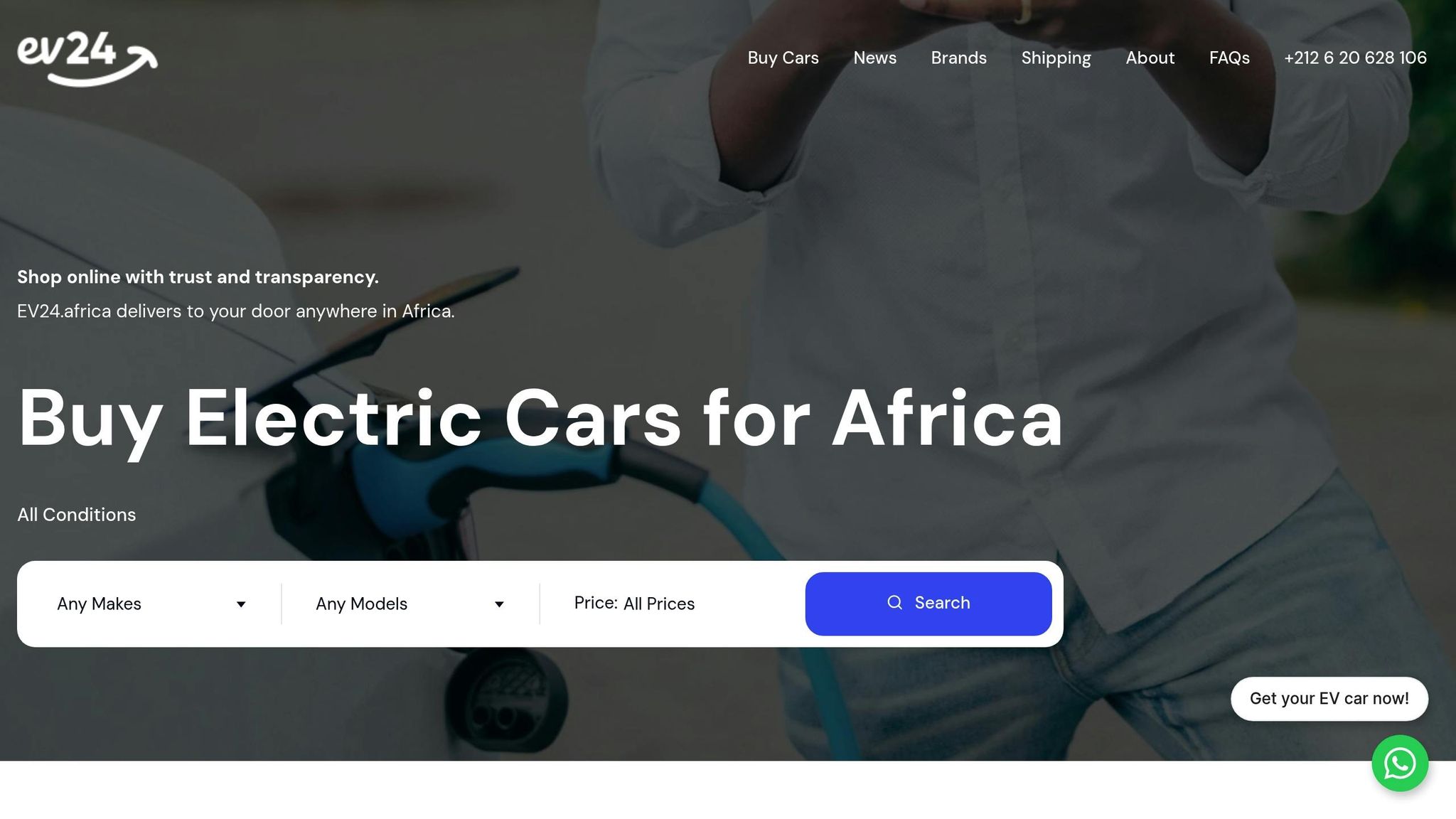
EV24.africa has positioned itself as a go-to online marketplace for new and used EVs, featuring brands like Tesla, BYD, Leapmotor, ROX, Dongfeng, Geely, Hyundai, Toyota, and Suzuki. The platform offers transparent pricing, detailed vehicle specifications, and customer reviews, enabling buyers to make well-informed choices. Beyond that, EV24.africa provides financing options and shipping services across all 54 African countries, making EVs accessible to customers in both major cities and more remote areas. This comprehensive approach is helping to bridge the gap between consumers and the growing EV market.
Opportunities for Stakeholders
The rise of EVs in Africa opens up a range of possibilities for different stakeholders. Consumers now have access to a wider variety of vehicles and financing options, making the switch to electric mobility more achievable. For manufacturers, there’s an opportunity to scale up local production, meeting regional needs while driving economic development. Investors can tap into the growing ecosystem by supporting infrastructure projects, improving supply chains, or developing innovative aftermarket services. Additionally, customized financing and insurance solutions are emerging as key drivers of market expansion across the continent.
Future Projections and Recommendations
Africa’s electric vehicle (EV) market is poised for notable growth over the next decade, driven by increasing sales and rising market value. Key regions like South Africa, Nigeria, Kenya, and Morocco are expected to lead this charge, fueled by growing interest among consumers and improving affordability. The commercial vehicle sector – particularly electric buses and delivery vans – is set to play a crucial role as governments prioritize fleet electrification. This evolving landscape presents both challenges and opportunities that demand strategic action.
EV Sales and Market Value Forecasts
Sales volumes and market value are anticipated to rise significantly across Africa’s primary markets. Commercial vehicles, in particular, are expected to be a major growth driver, as governments push for electrified fleets to meet sustainability goals.
Challenges to Adoption and Emerging Solutions
While the outlook is promising, several hurdles remain. High upfront costs and limited charging infrastructure continue to deter widespread EV adoption. However, innovative approaches are beginning to tackle these issues. For instance:
- Battery leasing programs: These reduce upfront costs for consumers by separating battery ownership from the vehicle purchase.
- Modular charging systems: Off-grid solutions that bring flexibility and reduce dependence on traditional infrastructure.
- Mobile charging services: On-the-go charging options that address gaps in fixed infrastructure.
These initiatives aim to make EVs more accessible and practical, helping to overcome the affordability and infrastructure barriers.
Recommendations for Stakeholders
To fully capitalize on the growth potential, stakeholders across the ecosystem need to act strategically:
- Consumers: Evaluate the total cost of ownership, which includes lower running and maintenance expenses compared to traditional vehicles.
- Manufacturers: Consider local assembly or production to adapt vehicles to regional needs and reduce costs.
- Policymakers: Develop incentive programs, such as EV-only zones, preferential parking, and investments in electricity infrastructure to support growing demand.
- Investors: Explore opportunities in expanding charging networks, battery recycling projects, and second-life applications for EV batteries.
- Financial institutions: Create tailored EV financing products that leverage the long-term savings and new revenue possibilities associated with EV ownership.
Conclusion: Main Points and the Road Ahead
Africa’s electric vehicle market is gaining traction, thanks to advancements in charging infrastructure and government policies that are paving the way for wider adoption across the region.
Looking ahead, the journey requires collective effort. Close collaboration among industry leaders, policymakers, and financial institutions will be crucial to tackle existing challenges, drive innovation, and realize both environmental and economic advantages.
To ensure lasting progress, consistent investment in charging networks and ongoing regulatory updates will play a key role in creating a robust and inclusive electric vehicle ecosystem.
FAQs
What are the biggest challenges to electric vehicle adoption in Africa, and how are they being addressed?
The growth of electric vehicles (EVs) in Africa faces some significant hurdles. For starters, the unreliable and limited electricity grid makes it tough to support the widespread use of EV charging stations. On top of that, the high upfront cost of EVs puts them out of reach for many consumers, where affordability remains a major concern across the continent.
To tackle these issues, governments and private companies are stepping up. Investments are being directed toward improving energy infrastructure and ensuring more reliable electricity access. Measures like tax breaks, subsidies, and flexible payment plans are being introduced to make EVs more accessible. At the same time, efforts are underway to establish durable charging networks and boost local production, which can help lower costs while creating jobs. By aligning policies across borders and attracting investments, Africa is steadily addressing these challenges and opening up opportunities in its EV market.
How are government policies in countries like Rwanda, Ethiopia, and South Africa driving the growth of electric vehicles in Africa?
Government policies in Rwanda, Ethiopia, and South Africa are playing a key role in speeding up the shift to electric vehicles (EVs) by offering incentives and shaping a favorable regulatory framework.
In Ethiopia, measures like import duty waivers, tax exemptions, and a prohibition on internal combustion engine (ICE) vehicles are making EVs more affordable and accessible for consumers. Rwanda has taken similar steps by removing VAT and customs duties on EVs, making it easier for people to make the switch. South Africa, on the other hand, is focusing on boosting local EV production with incentives like a 150% tax deduction. The country is also exploring consumer rebates and subsidies to encourage more widespread adoption. Alongside these policies, all three nations are investing in charging infrastructure to support the growing number of EVs on the road.
These efforts are not only creating opportunities for consumers and manufacturers but also attracting investors. Together, they are paving the way for a cleaner, more sustainable transportation landscape across Africa.
What opportunities are available for investors and manufacturers in Africa’s electric vehicle market?
Africa’s electric vehicle (EV) market is on track for remarkable growth, with estimates suggesting it could reach $17.4 billion by 2025. This surge is being driven by a mix of government incentives, improved infrastructure, and a growing emphasis on renewable energy solutions.
For investors, the opportunities are vast. These include funding EV infrastructure projects like charging networks and renewable energy systems, as well as supporting local production efforts. Meanwhile, manufacturers stand to gain from Africa’s increasing focus on establishing local EV production capabilities. This includes vehicle assembly and battery manufacturing, with countries such as South Africa and Morocco taking the lead. Both nations are leveraging government-backed investments and industrial projects to attract international players.
Africa’s dedication to creating a strong EV value chain is paving the way for sustained growth and forward-thinking advancements in both the automotive and energy industries.


